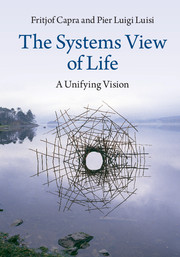Introduction - Paradigms in science and society
Published online by Cambridge University Press: 05 April 2014
Summary
Questions about the origin, nature, and meaning of life are as old as humanity itself. Indeed, they lie at the very roots of philosophy and religion. The earliest school of Greek philosophy, known as the Milesian school, made no distinction between animate and inanimate, nor between spirit and matter. Later on, the Greeks called those early philosophers “hylozoists,” or “those who think that matter is alive.”
The ancient Chinese philosophers believed that the ultimate reality, which underlies and unifies the multiple phenomena we observe, is intrinsically dynamic. They called it Tao – the way, or process, of the universe. For the Taoist sages all things, whether animate or inanimate, were embedded in the continuous flow and change of the Tao. The belief that everything in the universe is imbued with life has also been characteristic of indigenous spiritual traditions throughout the ages. In monotheistic religions, by contrast, the origin of life is associated with a divine creator.
- Type
- Chapter
- Information
- The Systems View of LifeA Unifying Vision, pp. 1 - 16Publisher: Cambridge University PressPrint publication year: 2014
- 1
- Cited by

